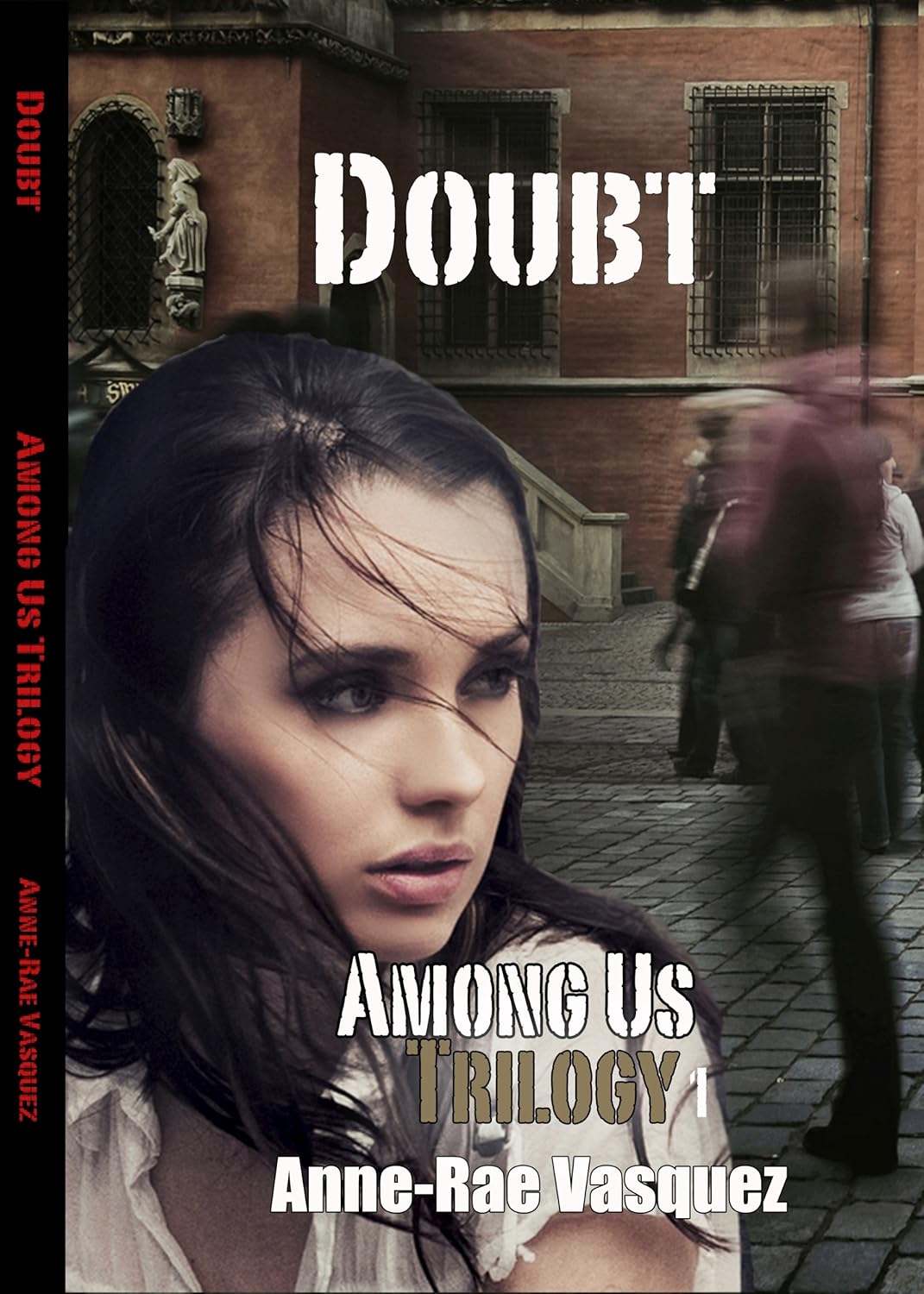New Adult/Young Adult? Or can a book fall under both genres? syndicated from @Write2Film
The following is syndicated from amongus.ca and is posted here with permission.
Does Doubt fall under the New Adult or Young Adult genre?
We received an honest review which focuses on the point that the reader expected a more mature storyline and questioned why Doubt was categorized in the New Adult genre.
 |
| Cover links to Amazon.com |
It made us here at Truth Seekers’ headquarters stop and think…
- Doubt’s main characters are former child prodigies, geeks who socialized mainly online.
- Cristal and Harry are 22 years old, just graduated from university with their PhDs
- They have never had a “boyfriend”, “girlfriend” relationship before.
- Emotionally they are more like young adults. Virgins, with little or no experience physically with anyone.
- Doubt can appeal to young adults because the content is clean and safe. No sex scenes, no swearing (just implied swearing with censored out letters)
- Does New Adult require the book to have “sexual scenes”?
What qualifies as New Adult?
See an excerpt from J. Sterling’s interesting article What Does New Adult Mean to You?
“I classify my books as New Adult when the main characters are either college aged, or in their early 20′s. The story may not necessarily appeal to the true YA audience because the characters are doing things they can’t relate to yet (interning, working full time, living with their bf’s, etc). It’s about a period of time in our lives when we’re not necessarily sure where we’re headed. We’re still figuring things out. It’s that in-between stage between high school and true adulthood. We’ve all been there.
Now my characters in In Dreams are in college, but I wrote that book in a younger voice, with no sex, very little swearing, etc. I classify it as YA because it reads as YA, even though the characters are no longer in high school. I felt like the situations the characters go through was appealing enough to a younger audience that they wouldn’t feel like they couldn’t relate.
I honestly think that if your main characters are in high school, then your book is Young Adult. At least that’s what i’ve always just assumed as a reader. Young Adult = high school aged stories. No matter if they’re having sex, swearing, doing drugs, etc- high school kids have sex, swear, do drugs, etc.
But I’ve seen some high school aged books being called New Adult. So i’m wondering, are we classifying that category based on subject matter of the book, the way the book is written, or the age of the characters?!” The content is an excerpt from What Does New Adult Mean to You? article on J. Sterling’s blog.
Feedback and Comments from the article
The interesting feedback makes us more confused than ever.
Here are some comments that J. Sterling’s followers posted about her article…
I see New Adult as a mixture of both content and where the characters are in life. While these days, high school kids shouldn’t be shocked by cursing and sex in books, I think their parents do. I don’t know, I prefer the “older” context and content personally, and more often than not seek out something that says New Adult over Young Adult.
Yes, if I’m starting a New Adult book I assume that the characters will be at least in college or in their 20′s. And I also assume there will be sex. If I’m reading a book with high schoolers, and they are having sex, doing drugs, etc., I would assume it be called Mature Young Adult. I would say I could be wrong, but let’s face it, that’d be silly. Because if I am wrong, then the rating system needs to change so that I am right. Ha! Otherwise it’s way too confusing.
It’s a little contradictory for me, because I am a young adult in university, and yet I do not find myself drawn to “young adult” novels, because I always thought that they were fluffy stories that stayed away from the idea of sex or anything sexual related and language. Something too lovely-dovey that I would not be able to relate to or stomach when reading. But was my mind changed after reading “Game Changer”. I enjoyed the storyline, and given the young adult theme attached to the book, it was the right amount of sex, and language and it was a relatable story.With that said, “young adult” for me deals with young adults, between the ages of 16 to 18. Young adult novels if applicable can have sexual scenes but nothing to the degree of erotica, because that is in a category of it’s own. But I think that there are different degrees of young adult novels, considering Twilight was considered in this category, it does cause conflict and misunderstanding. That is why there should be a difference between young adult that deals with novels between the ages of 16 to 18, and young adult for over the ages of 18 dealing with more mature subjects and content and then the full out erotica. At that point can it be said that its’ young adult NC17 while warning the reader that the subject matter might not be applicable to a certain reader?
Read the full article at: What Does New Adult Mean to You?
Your thoughts? Please comment below. We really want to know how you feel about these two genres.
